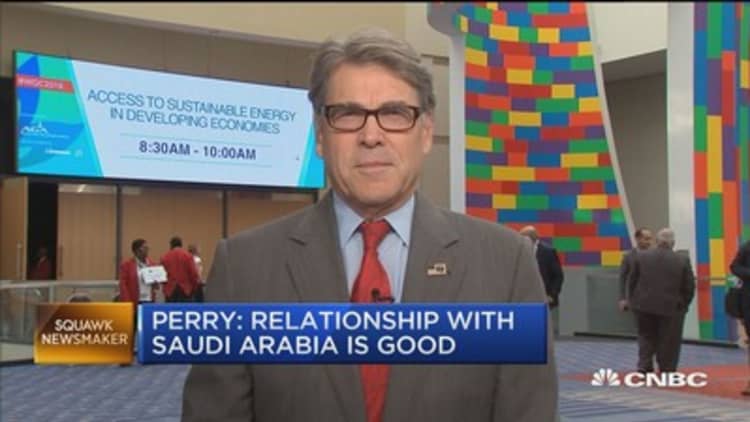
Energy Secretary Rick Perry on Thursday confirmed he met with Russia's oil minister this week, and laid out U.S. concerns about a number of issues, including Moscow's annexation of the Crimean peninsula from Ukraine in 2014.
"We shared with them our concerns about some of the activities they've been involved with, whether it's Crimea, Ukraine [or] the continual development of the Nord Stream 2 [natural gas pipeline]. All of those are on the table," Perry said on CNBC's "Squawk Box" from the 2018 World Gas Conference in Washington, D.C.
"They're obviously not unilateral for the Department of Energy to be making decisions. But we can send a message," he added.
Perry's meeting with his Russian counterpart came ahead of a summit between President Donald Trump and Russian President Vladimir Putin, set for July 16 in Helsinki, Finland.
Russia will be a "major player in the European market" for natural gas, Perry said, recognizing the competitive edge of the Nord Stream 2 pipeline, under the Baltic Sea, that will directly connect Russia and Germany. Critics are concerned about the $11 billion project boosting Europe's dependence on Russian gas.
"Competition is a good thing was basically our message," Perry said. "[However,] we're going to put our shoulders to task and try to get as much American LNG [liquefied natural gas] into the [European] community as we can."
On oil prices, which have soared more than 12 percent in recent weeks, Perry refused to predict the future path for crude. But he said $65 to $70 per barrel "seems to be a place where most of the producers are comfortable."
West Texas Intermediate crude, the American oil benchmark, shot up 3 percent on Wednesday, settling at $72.76 per barrel. That's the highest settle for WTI since November 2014.


